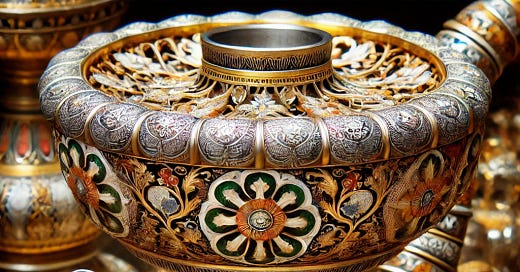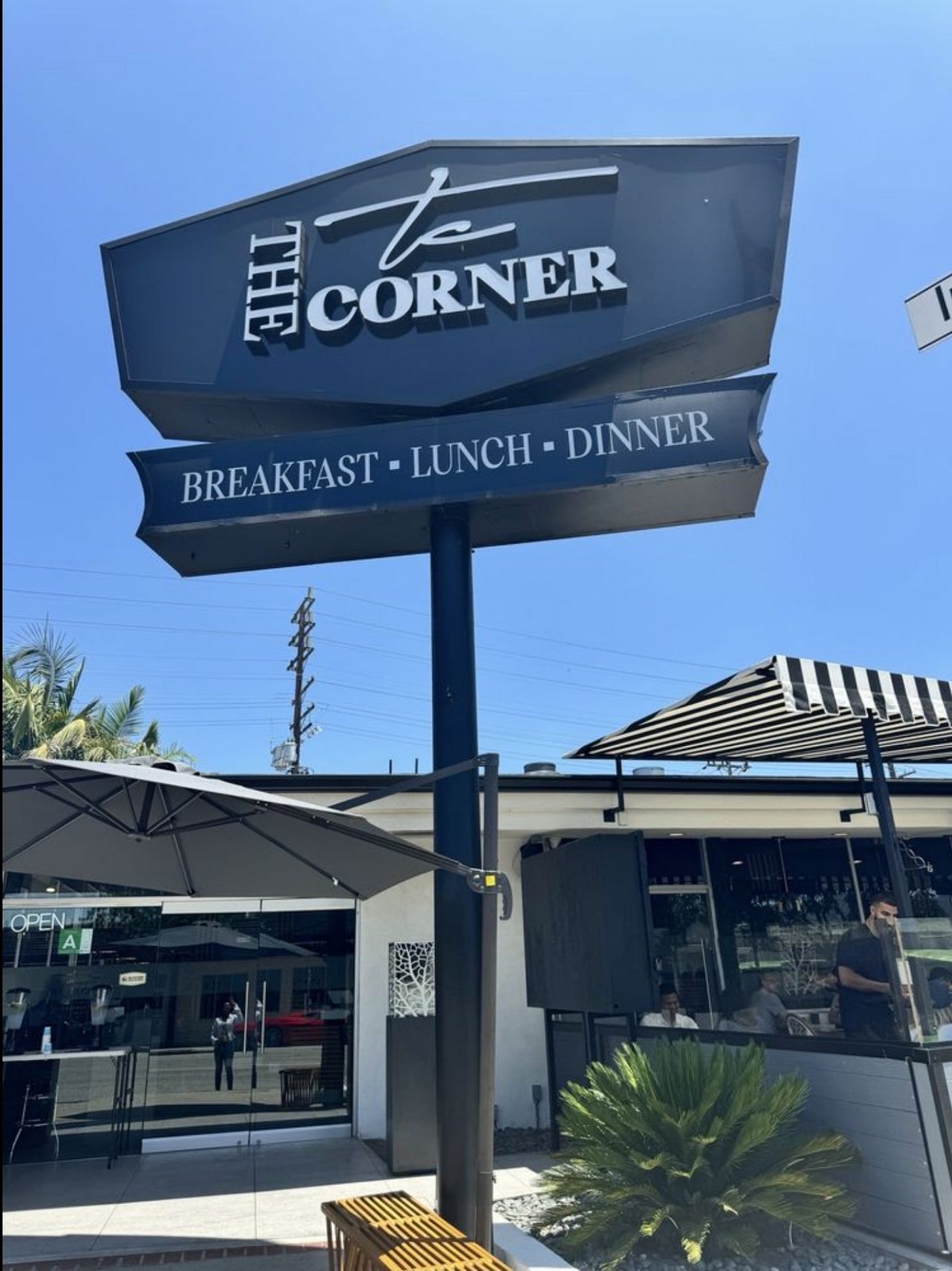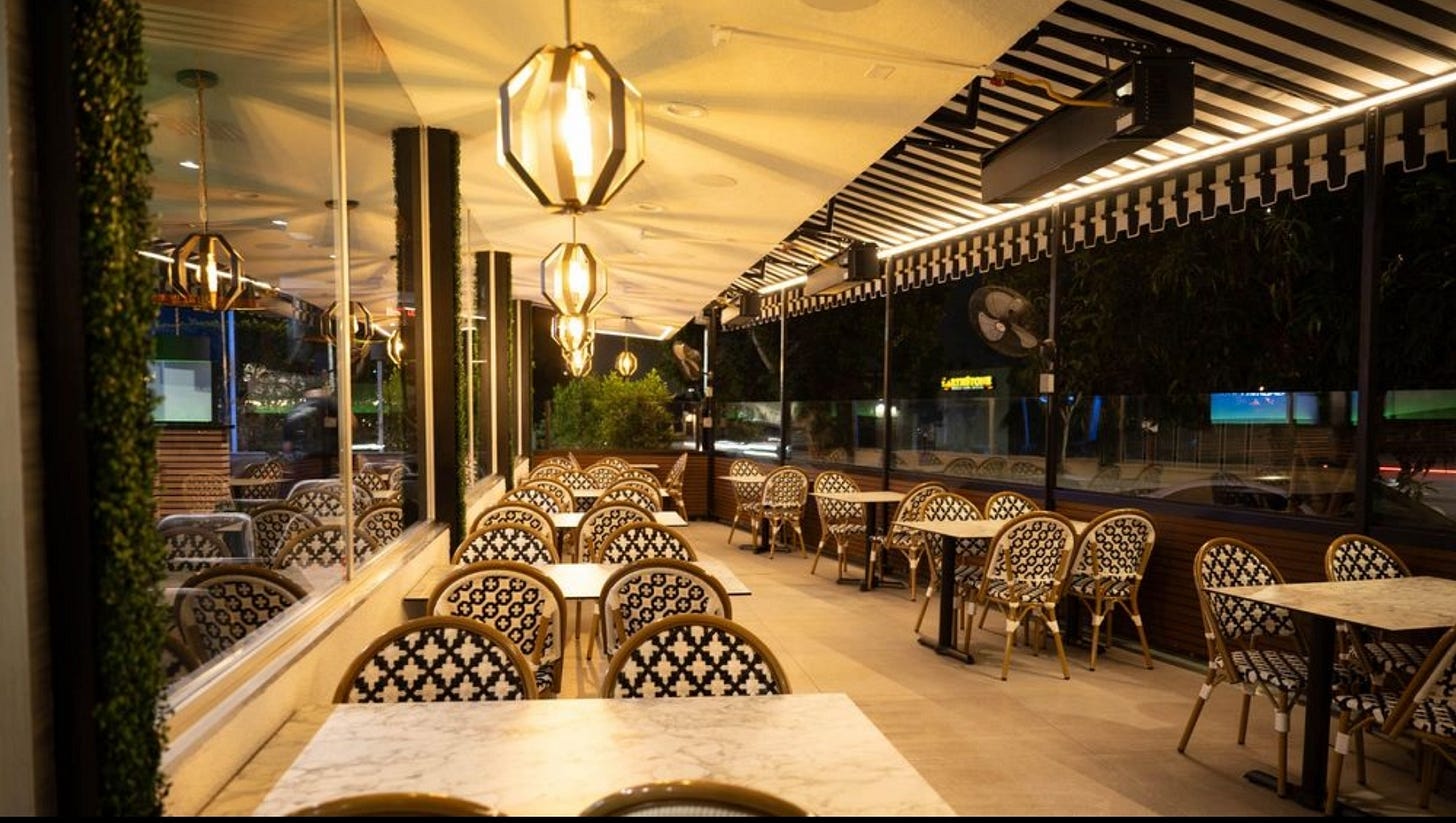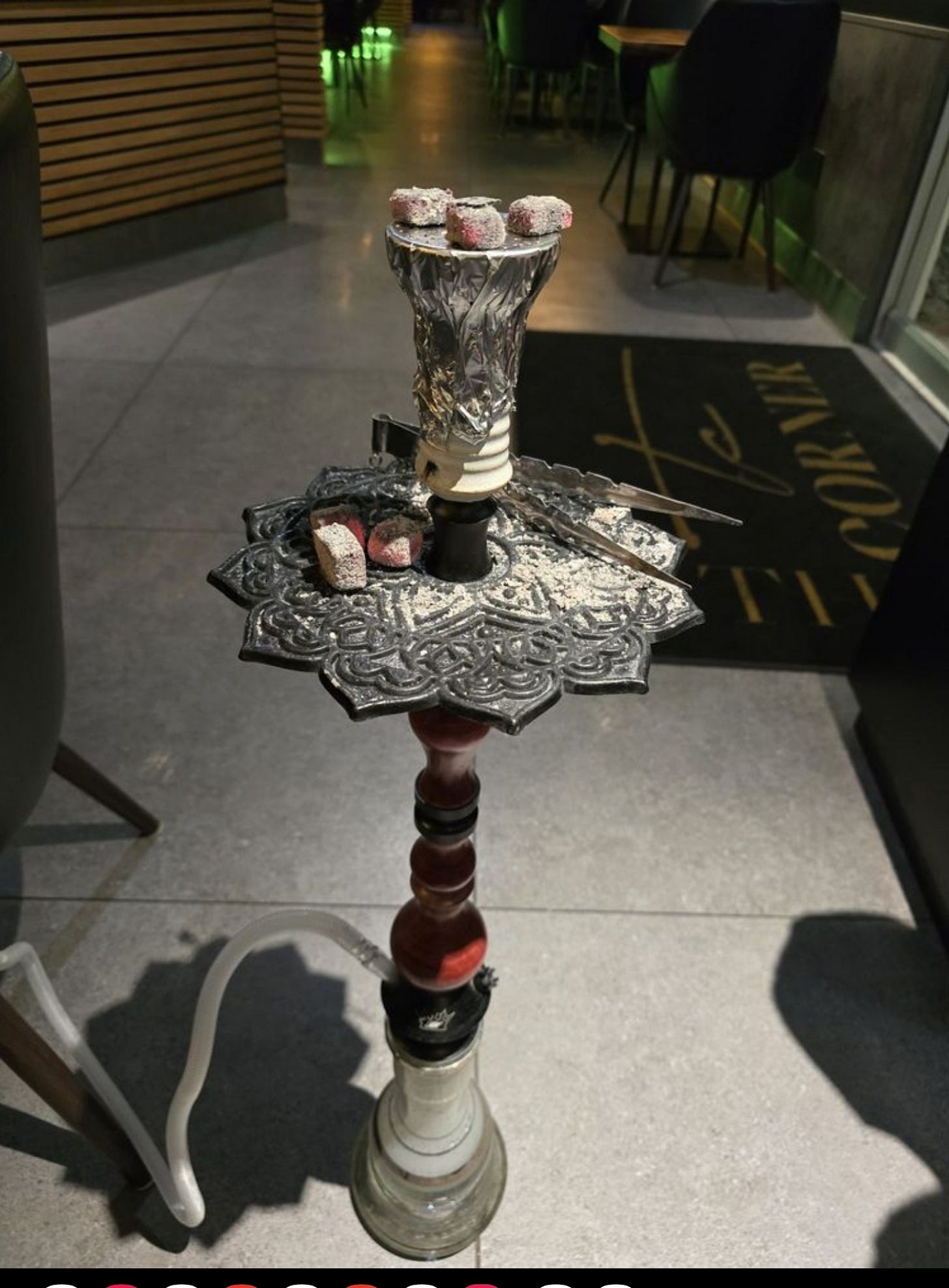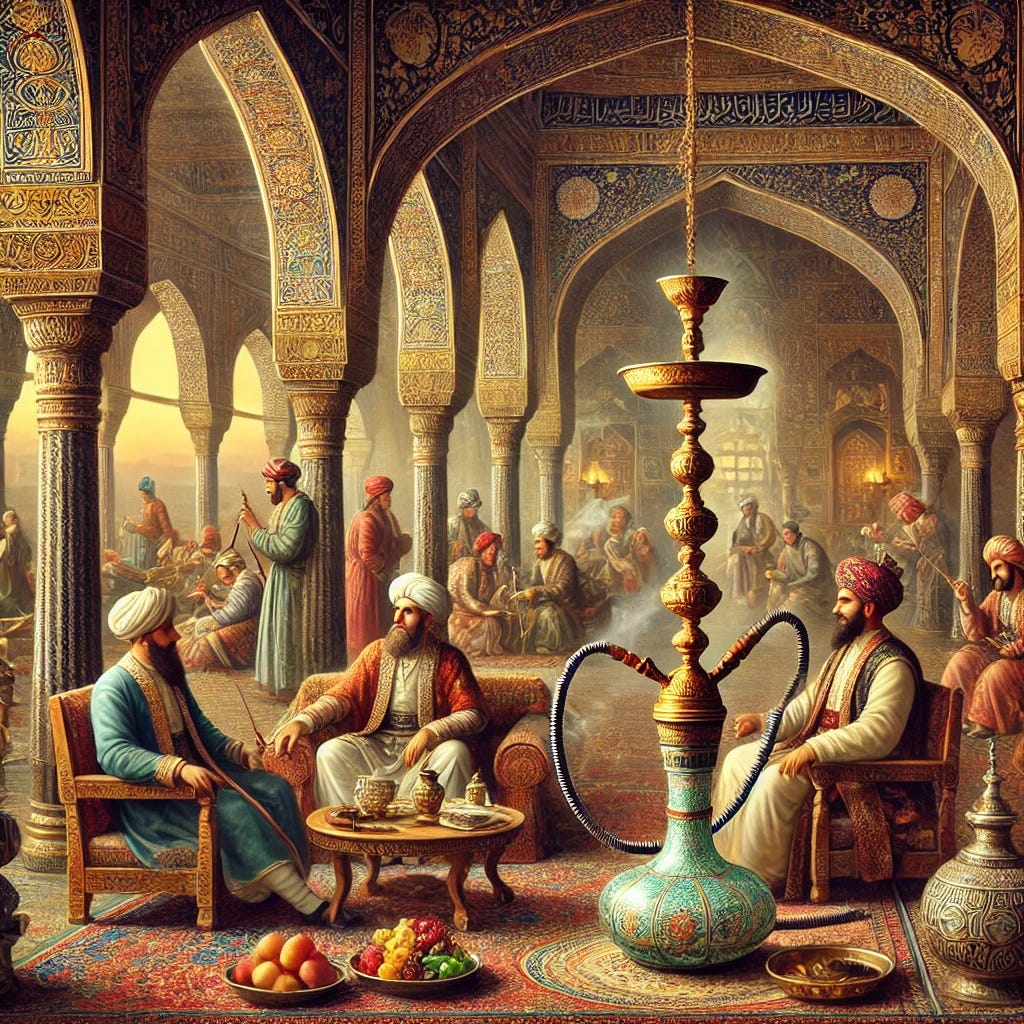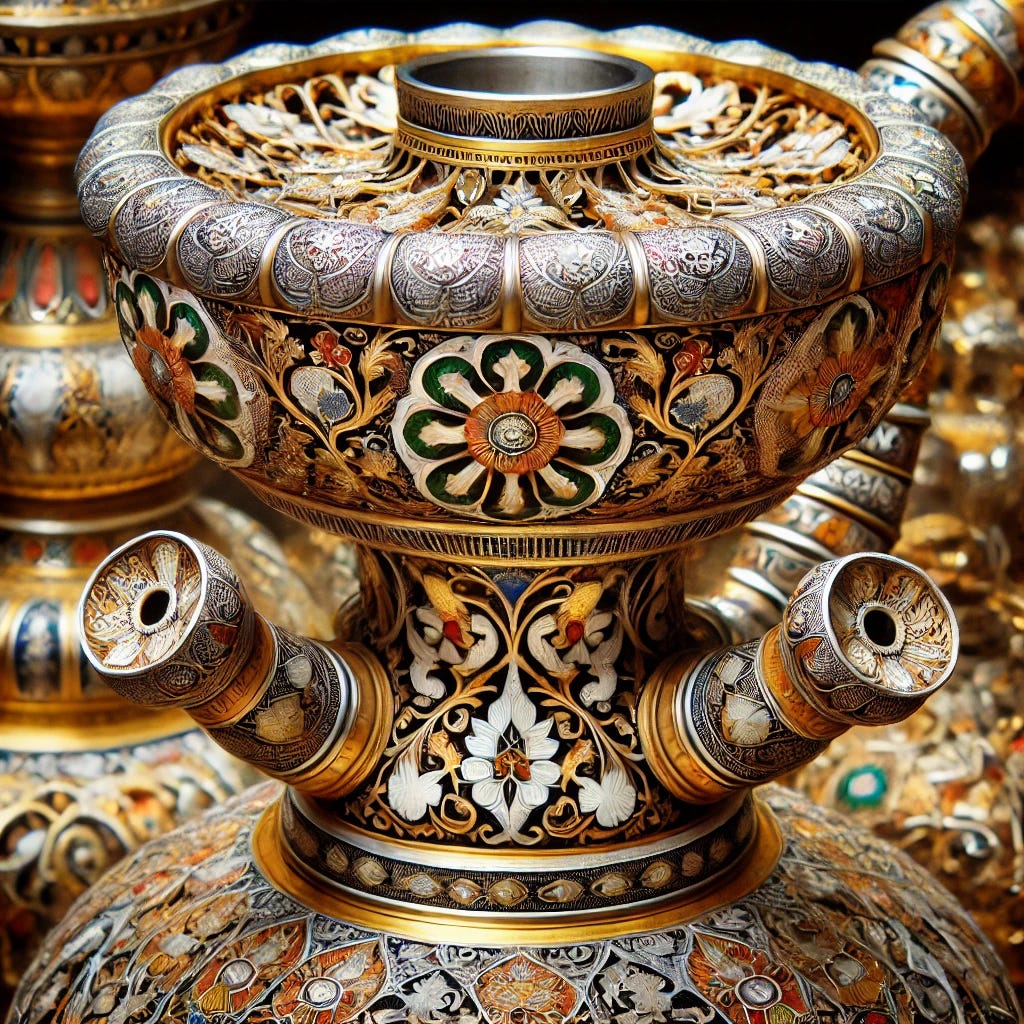Last night, my fiancé and I joined her childhood friends at The Corner in Glendale. It was supposed to be a simple, relaxing night out—just some tea, good company, and the usual catching-up. But instead, I found myself in a situation I hadn’t expected: trying a hookah for the first time.
Now, I’m no stranger to tobacco, but this was a whole different experience. When they brought out the hookah, it looked like something that belonged in a museum—or possibly an ancient temple where sages convene to make world-altering decisions. The long hoses, the bubbling water, the slow-burning embers—it was theatrical, like a magic trick in slow motion.
After a quick tutorial from our friends and the waiter (who handled the hookah with the precision of a bomb squad technician), I took my first puff. And you know what? It was surprisingly smooth! The flavored tobacco had a sweet, almost dessert-like quality, nothing like the harshness of a cigarette or cigar. More importantly, the ritual itself was unexpectedly enjoyable. Sitting at a table across from friends, passing the hose around, watching the smoke curl into the air—it had an oddly meditative quality. It wasn’t just about smoking; it was about sharing the moment.
We also had tea, which made the experience feel even more dignified. Something about sipping hot tea between puffs made me feel like I should be wearing robes and making deep, philosophical pronouncements. Instead, I mostly said things like, “Wow, this actually tastes good,” and “Why does this feel so much classier than it should?”
At some point, I started wondering—who came up with this? Who decided, centuries ago, that what the world really needed was a long, ornate contraption designed solely to let people inhale flavored smoke in the most dramatic way possible?
Well, the history of the hookah is just as elaborate as the device itself. The story begins in the 16th century in what is now India, where an Iranian physician—concerned about the health effects of smoking—devised a system to filter smoke through water, theoretically making it “safer.” Whether or not this actually worked is up for debate, but one thing’s for sure: he accidentally invented the most sophisticated way to sit around and gossip.
From there, the hookah spread westward to Iran and the Ottoman Empire, where it became the ultimate symbol of status and sophistication. Iranian tea houses became social hubs where poets, scholars, and regular folks gathered to smoke, sip tea, and debate life’s big questions—like whether or not the neighbor’s donkey was actually stolen, or just really good at escaping. In Ottoman palaces, hookahs weren’t just enjoyed—they were works of art, adorned with gold, silver, and precious stones, turning smoking into a royal spectacle.
Of course, there are plenty of legends about the hookah. Some say an Iranian mystic once blended the perfect combination of herbs, producing a smoke so fragrant that it was said to grant visions of the future. Others claim that a long-lost emperor refused to make any major decisions without first consulting his hookah, which, to be fair, is still a more thought-out decision-making process than some modern politicians employ.
As time passed, hookah culture spread across the world, making its way into trendy lounges where groups of friends gather to talk, laugh, and—if they’re anything like me—pretend they’re way cooler than they actually are.
Which brings me back to my night at The Corner. While I didn’t achieve enlightenment or gain any mystical insights, I did walk away with a newfound appreciation for the tradition. It’s not about the smoking itself—it’s about the experience, the atmosphere, the camaraderie, and the simple joy of slowing down for an evening.
So, would I do it again? Absolutely. Would I ever master the art of looking effortlessly cool while doing it? Probably not. But if you’re looking for a great place to relax, enjoy some top-tier service, and pretend you’re an Ottoman sultan for a night, The Corner is the place to be. And next time, I’ll even try the food.

